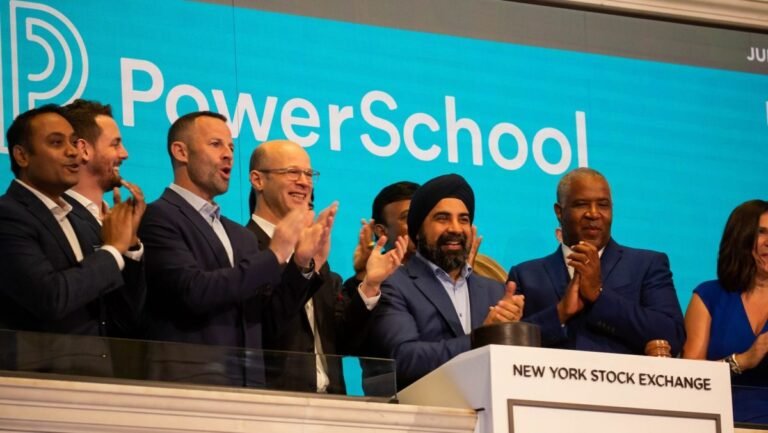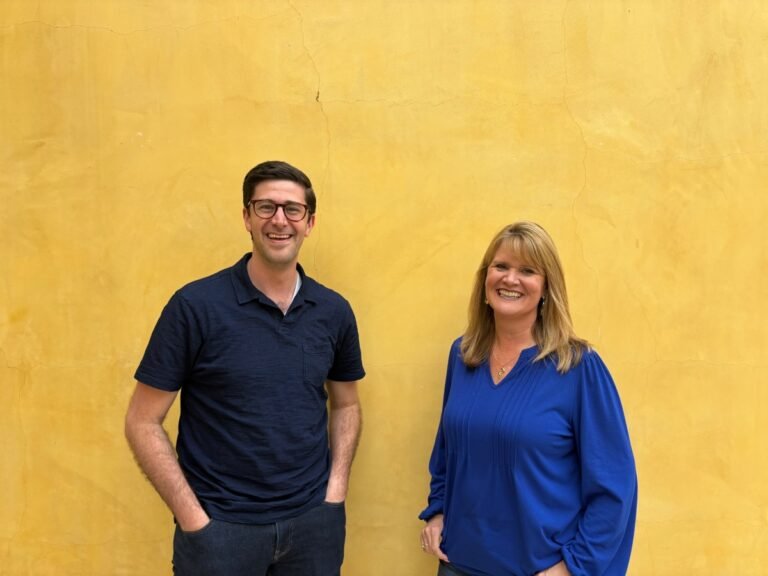
Cloud-based education software vendor PowerSchool is being taken private by investment firm Bain Capital in a $5.6 billion deal.
The announcement comes amid a swathe of take-private deals led by private equity firms seeking a bargain on under-performing enterprise software firms.
Founded in 1997, PowerSchool is a web-based platform that helps educational institutions manage areas of their operations such as enrollment, grades, attendance, and communication with parents and students.
The company went public on the New York Stock Exchange (NYSE) in 2021, after previously been acquired by private equity firms Onex and Vista.

Notable Capital’s Hans Tung on the state of VC and the upside to down roundsTo some investors, “down round” is a dirty phrase, but not to Notable Capital’s Hans Tung.
Hans is a managing partner at Notable Capital, formerly GGV Capital, a venture firm focusing on investments in the U.S., Latin America, Israel, and Europe.
Hans, whose portfolio includes the likes of Airbnb, StockX and Slack, sat down with TechCrunch’s Equity podcast to discuss the overall state of venture and why he still believes down rounds can make a lot of sense.
Of course, we dug into recent changes at his own firm, which evolved from 24-year-old cross-border firm GGV Capital and rebranded its U.S. and Asia operations to Notable Capital and Granite Asia, respectively.
GGV’s transformation is the latest in a string of changes we’ve seen in the world of venture capital, including personnel changes at Founders Fund, Benchmark and Thrive Capital.

What is worth $11 billion and wants to go to Mars to collect rocks?
NASA’s mission to Mars to collect rocks that was expected to cost $11 billion and take ages.
So, the U.S. space agency is throwing the doors open to get more input, and that means that startups are looking at an opportunity that is truly out of this world.
To close, the massive, gobsmackingly big $7.2 billion worth of new funds from a16z.
For the full interview transcript, for those who prefer reading over listening, read on, or check out our full archive of episodes over at Simplecast.

It’s against this backdrop that Evolution Equity Partners, a growth capital investment firm based in NYC, on Tuesday launched a $1.1 billion cybersecurity and AI fund, the third such fund in Evolution’s history.
The fund, called Evolution Technology Fund III, was oversubscribed, with participation from existing and new endowments, sovereign investors, insurance companies, foundations, fund of funds, family offices and angels.
“The Evolution Technology Fund III has already backed fifteen leading cybersecurity companies, initiating its investment period over 12 months ago,” Seewald said.
“We believe that provides private markets investors with diversified exposure to cybersecurity opportunities.”ESG will be another factor, according to Seewald.
Evolution’s 30-person teams manages around $2 billion in assets and has backed 60 companies to date; its previous fund was $400 million.

Design firm Zypsy will do $100,000 worth of work for 1% equity for early-stage startupsZypsy, a design firm with a track record of helping early-stage startups, has launched a new and somewhat unique venture investment program.
Instead startups will pay by issuing Zypsy 1% equity of their companies via a SAFE (Simple Agreement for Future Equity).
Zypsy has already added five startups to the first cohort of the design capital program (alphabetical order):Pilot projects with over 25 startups for three yearsThe six-year-old design company has worked with more than 25 startups.
“They are ‘cash-based clients, not an ‘equity-based portfolios’ like five companies we mentioned in the first design capital program,” he said.
In 2023, Zypsy raised $3 million to establish Design Capital.

When Alex Katz founded Two Chairs in 2017, he firmly believed that in-person therapy is the most effective for behavioral health.
On Tuesday, the company announced a $72 million Series C equity and debt financing led by Amplo and Fifth Down Capital, bringing Two Chairs total funding to $103 million.
Amplo also led the company’s $22.5 million Series B in August 2019.
Two Chairs is one of the latest therapy startups to raise substantial funding rounds.
Last week, Grow Therapy, a three-sided mental health platform for therapists, payers and patients, raised an $88 million Series C round led by Sequoia.

Equity is TechCrunch’s flagship podcast and airs every Monday, Wednesday and Friday.
You can subscribe to us on Apple Podcasts, Overcast, Spotify, and all the casts.
You also can follow Equity on X and Threads at @EquityPod.
For the full interview transcript, for those who prefer reading over listening, read on, or check out our full archive of episodes over at Simplecast.

When it comes to news items that we love at TechCrunch, IPOs rank pretty darn high.
Another great newsy bit that comes along less frequently than we’d like is a startup buying another startup.
These deals are often very interesting as they either bring a gob of talent, or technology to an already growing company, potentially accelerating it.
So it was with joy that the Equity Podcast crew dug into Automattic buying Beeper for $125 million.
But certainly we are an ocean or two away from the heady days we saw back in 2021.

How PayJoy built a $300M business by letting the underserved use their smartphones as collateral for loansLerato Motloung is a mother of two who works in a supermarket in Johannesburg, South Africa.
Then, in February 2024, she saw a sign about PayJoy, a startup that offers lending to the underserved in emerging markets.
Motloung is one of millions of customers that San Francisco–based PayJoy has helped since its 2015 inception.
And, unlike other startups offering loans to the underserved, it’s doing so in a way that’s not predatory, it says.
Last September, PayJoy announced that it had secured $150 million in Series C equity funding and $210 million in debt financing.

Hello, and welcome back to Equity, a podcast about the business of startups, where we unpack the numbers and nuance behind the headlines.
This is our Monday show, where we dig into the weekend and take a peek at the week that is to come.
Now that we are finally past Y Combinator’s demo day — though our Friday show is worth listening if you haven’t had a chance yet — we can dive into the latest news.
So, this morning on Equity Monday we got into the chance that the United States might pass a real data privacy law.
There’s movement to report, but we’re still very, very far from anything becoming law.













